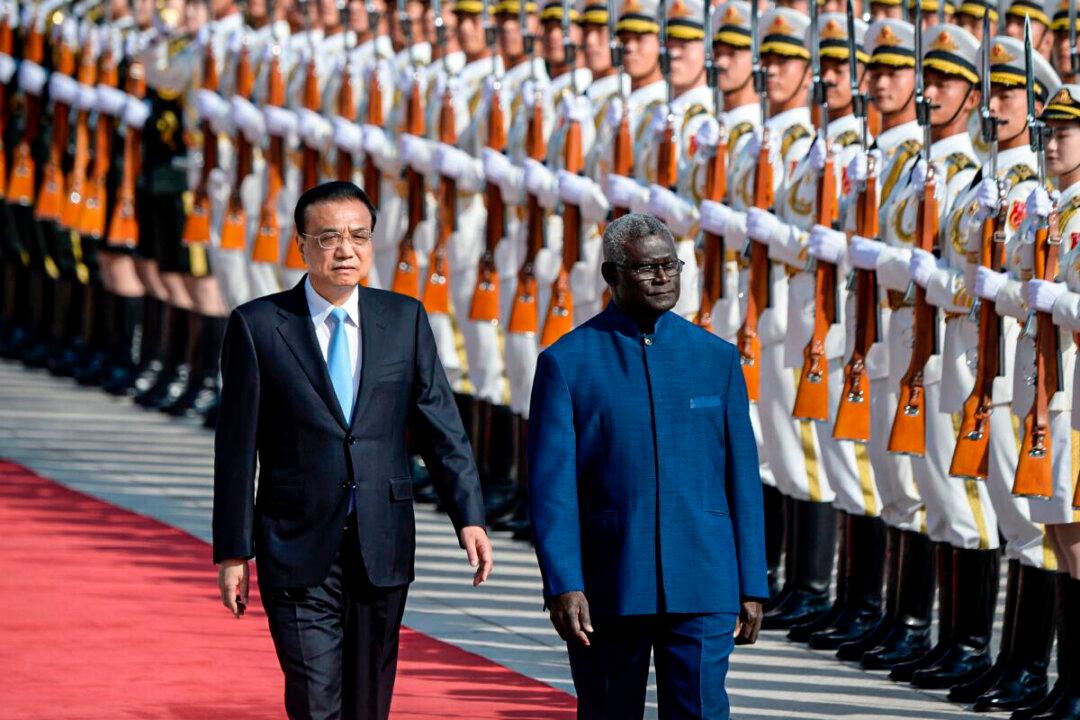Beijing has confirmed it will send a police advisory team to the Solomon Islands, along with emergency riot equipment for police after the Solomon Islands government requested aid from the Chinese regime.
Spokesperson for the Chinese Communist Party (CCP), Zhao Lijian said on Dec. 23 that the personnel and the supplies would arrive in the Solomon Islands soon, adding that China firmly backs the government of Prime Minister Manasseh Sogavare’s right to defend “the country’s stability” while condemning any illegal and violent actions.





